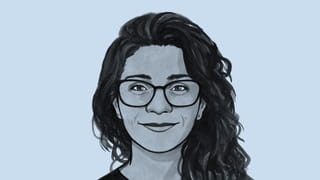It’s 2019. In the age of digital journalism, readers as active participants is a no-brainer. There are plenty of online platforms or tools that help journalists bridge the gap with readers on the issues that matter.
For years, media professionals have been using their social media channels to connect with sources, posting surveys or holding live events to work within the communities they report on.
Still, there’s more that can be done. The notion of ‘working within communities’ is problematic because it implies that a journalist can dip out of a community just as fast as they dipped into it.
So what about working with groups – that have experience and expertise –more deeply, and for longer? What about making it truly collaborative rather than transactional, with both journalists and readers on an equal footing?
Creating a new mode of storytelling
The narratives that traditional media favour don’t help. As an editor, I have seen journalists of all nationalities come back with the same foregone conclusions about other cities and countries: the walls are still scarred with the ravages of war, this is the last dictatorship in Europe, this is a former Soviet republic.
The national context and established histories of the countries we are reporting on – while essential – can also keep us from truly seeing the full picture. We should be breaking through extant structures. It is all about who we are writing for, and who are we reporting with.
We confuse exclusion with quality and hold our own privilege up as the standard
I have learned one thing, while leaning against glass walls in morning editorial meetings at my favourite national newspaper; or in my first job at an experimental journalism startup; or, most recently, as a researcher working on academic reports about transatlantic digital journalism or innovation in the Global South: until members of my family, who moved to Europe from Pakistan, feel included in the journalism we produce, there is still everything to change about our processes and our positions of privilege. We need to make sure our work is both accessible and doesn’t talk down to the groups to which we do not belong.
Journalists aren’t ‘know-all’ narrators
Whose eyeballs need to be on that report or article or feature or investigation or photo story? Sometimes it helps for a story to be presented back to readers through the eyes of someone who knows, and who is not limited by their higher education or lived experience.
Too often those who should be having a say are disqualified because they don’t have the language for it, or the qualifications that are perceived as necessary to tell the story. We confuse this exclusion with quality and hold our own privilege up as the standard, when really, every lived experience and every kind of expertise within society is a vital missing piece in journalism.
One example of how to find this missing piece comes from the executive editor of Rappler, Maria Ressa, who, while explaining that journalists were not all-knowing, said: “No one knows what is going to happen in the world today - not the government officials, and not us”. Addressing a young audience, she emphasised that they too were the ones who had experienced the world’s worst typhoon; they were the ones who should tell the world what to do next. Journalism can promote that idea of an empowered exchange, of elevating a reader or a member to the status of contributor rather than mere consumer.
What do we mean by ‘memberful reporting’?
As The Correspondent’s conversation editor, my mission is to help our journalists do ‘memberful reporting’. I have been using this phrase, coined by the team at the Membership Puzzle Project, as a guide every day since I started my new role a few months ago.
What does ‘memberful’ mean? At The Correspondent, our five correspondents and special projects freelance journalists will be working together with you, our 50,000+ members, at various stages of their reporting process: from research to writing, through to publication.
Our correspondents are curious to be proven wrong, to have their assumptions challenged, to see with new eyes
Whether you contribute by providing them with reading recommendations, sharing your lived experiences, participating in a conference call, spreading information via your networks, or joining them to share your expertise in your field – even perhaps, occasionally, proofreading right before a deadline – your input makes it possible for us to continue the intentional journey started by our Dutch sister site, De Correspondent, to do memberful reporting. As The Correspondent’s managing editor Eliza Anyangwe says, it’s about “working with our communities of expertise, as well as with our communities of experience”.
At cafebabel, a citizen journalism site then operating in Paris, I stayed in touch with our members through weekly newsletters, online chats and daily emails – before we were inundated by an onslaught of contributions from social media platforms.
These volunteer members informed our reporting and translated it into different languages, acted as fixers, travelled, and mobilised physically in local cafes or pubs across the European continent. It was an exciting experiment in journalism. I have always been amazed by how democratic our little experiment was in making a continent of 500 million people a smaller, more interconnected space. Every person we connected with was a specialist in something, and those who knew how to write about it did, with the help of others.
What I hope to achieve with you, the people formerly known as the audience
And so on to another exciting journalism startup – The Correspondent. Most days, I find myself calling in to New Delhi or St Paul, Minnesota. We plan the conversation we’ll be having with our members, conversations that are never restricted to the borders of the countries our correspondents live in. The process is becoming as intuitive as turning my eyes away from the screen and to a colleague sat beside me in the office.
Maybe, one day, my aunt will find herself an intuitive part of journalism too, and not just portrayed by parts of the UK media as a woman who’s the type to be raising terrorists, or by the French press as an inferior member of society because of the headscarf she wears.
Imagine a transnational view that took this woman’s voice into account. Imagine if a story related to her experience could reach her, even if she couldn’t read it herself. If her work on that story made a difference to how it was told.
It’s time to continue converging around a shared mission with “the people formerly known as the audience” – a term popularised by American journalists Dan Gillmor and Jay Rosen in the early 2000s. And it’s thrilling to get started - so how can we stay in touch?
You can email me anytime at nabeelah@thecorrespondent.com. The correspondents and I will be working together to talk to you over various platforms - be it email, social media, and more anonymous channels, so that we can share our ideas, tips and comments more clearly.
You can look forward to digital meetups, and in some cases physical meetups, from Lagos to Buenos Aires. In time, we hope to be sharing audio and video snapshots with you, and from you.
Our members privacy remains a priority for us, as it is with De Correspondent. All of our content is free to share, but the contributions section is reserved only for members. Anything members share with us here, on the platform, stays on the platform. I’ll also be staying in touch with you regularly with my own column.
So, finally, what are we looking for?
Each of the correspondents who has signed up to tell original stories has done so with the expectation of working with our members. Everyone is curious to be proven wrong, to have their assumptions challenged, to see with new eyes. Let us know who else should be included in the conversation, and we’ll work hard to reach them.
Everything is possible. So what are you waiting for?
Dig deeper
 Community guidelines: 9 ways to ensure constructive contributions
By inviting member contributions and questions, we believe that our journalism can be made richer, and members can also learn from each other. Here are a few tips to make it a positive experience for all.
Community guidelines: 9 ways to ensure constructive contributions
By inviting member contributions and questions, we believe that our journalism can be made richer, and members can also learn from each other. Here are a few tips to make it a positive experience for all.


